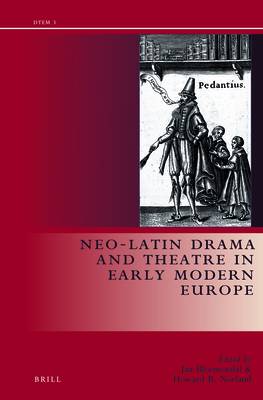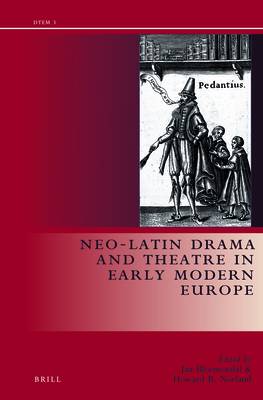
- Afhalen na 1 uur in een winkel met voorraad
- Gratis thuislevering in België vanaf € 30
- Ruim aanbod met 7 miljoen producten
- Afhalen na 1 uur in een winkel met voorraad
- Gratis thuislevering in België vanaf € 30
- Ruim aanbod met 7 miljoen producten
Zoeken
Neo-Latin Drama in Early Modern Europe
€ 373,95
+ 747 punten
Omschrijving
From ca. 1300 a new genre developed in European literature, Neo-Latin drama. Building on medieval drama, vernacular theatre and classical drama, it spread around Europe. It was often used as a means to educate young boys in Latin, in acting and in moral issues. Comedies, tragedies and mixed forms were written. The Societas Jesu employed Latin drama in their education and public relations on a large scale. They had borrowed the concept of this drama from the humanist and Protestant gymnasia, and perfected it to a multi media show. However, the genre does not receive the attention that it deserves. In this volume, a historical overview of this genre is given, as well as analyses of separate plays.
Contributors include: Jan Bloemendal, Jean-Frédéric Chevalier, Cora Dietl, Mathieu Ferrand, Howard Norland, Joaquín Pascual Barea, Fidel Rädle, and Raija Sarasti Willenius.
Contributors include: Jan Bloemendal, Jean-Frédéric Chevalier, Cora Dietl, Mathieu Ferrand, Howard Norland, Joaquín Pascual Barea, Fidel Rädle, and Raija Sarasti Willenius.
Specificaties
Betrokkenen
- Uitgeverij:
Inhoud
- Aantal bladzijden:
- 808
- Taal:
- Engels
- Reeks:
- Reeksnummer:
- nr. 3
Eigenschappen
- Productcode (EAN):
- 9789004253421
- Verschijningsdatum:
- 19/09/2013
- Uitvoering:
- Hardcover
- Formaat:
- Genaaid
- Afmetingen:
- 163 mm x 241 mm
- Gewicht:
- 1360 g

Alleen bij Standaard Boekhandel
+ 747 punten op je klantenkaart van Standaard Boekhandel
Beoordelingen
We publiceren alleen reviews die voldoen aan de voorwaarden voor reviews. Bekijk onze voorwaarden voor reviews.










